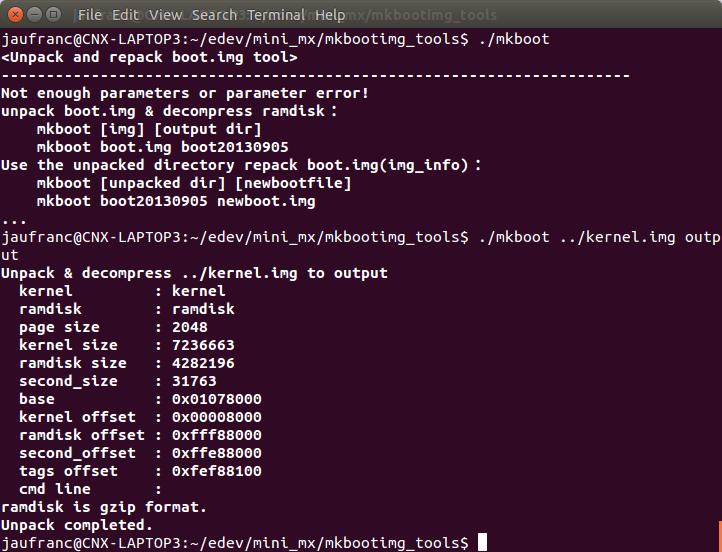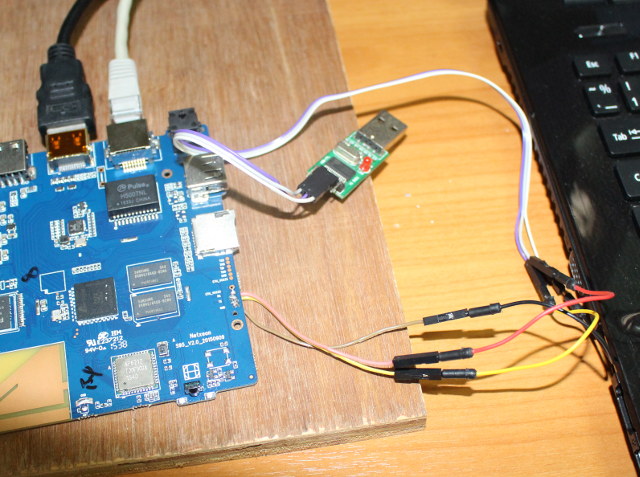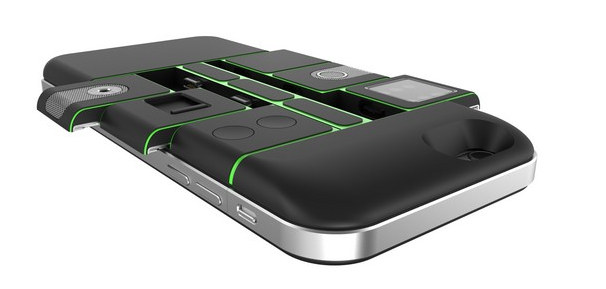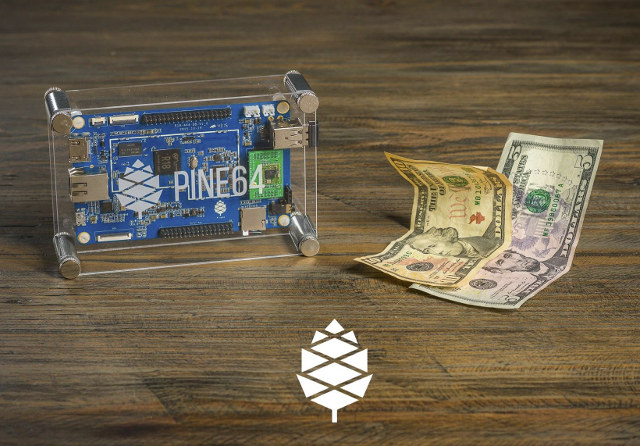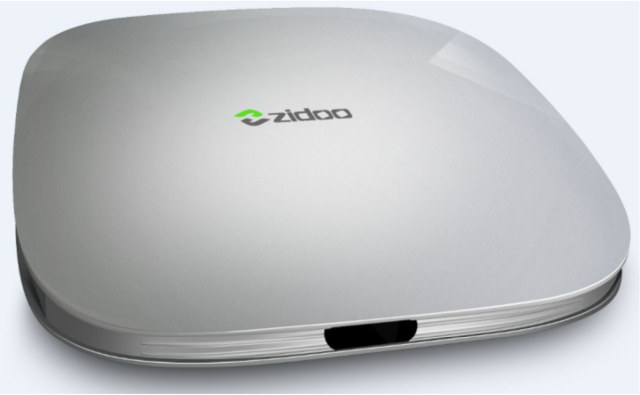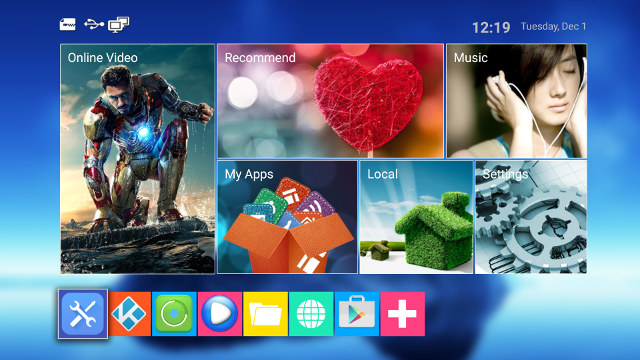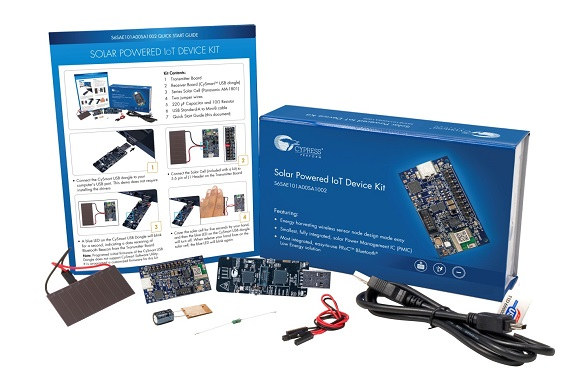In recent years, wearables such as fitness tracker have become popular to monitor the number of steps walked, calories burnt, and distance covered during your daily activities. These products are not always accurate however, and it get better data instead of having your wear a monitoring device, companies such as BodyCap are working on ingestibles, pills that some electronics, that the user swallows, and tranmit accurate data at a short range. One of the first product from the company is e-Celsius Performance that aims to measure body temperature of athletes, in order to optimize their performance. The pill has the following technical specifications: Data Storage – Up to one year, and up to 2000 samples Sampling – 30 seconds Accuracy – 0.2°C Connectivity – Wireless transmission (433 MHz); up to 1 meter range Battery – Not sure, but it can last 20 days Weight: 1.7g Dimensions – 17.7mm x 8.9 […]
How to extract kernel.img with mkboot script
As I tried instructions to install Linux on Amlogic S905 Android TV boxes yesterday, I wanted to extract kernel.img file found in Android firmware, but Google did not help that much until I found mkboot part of mkbootimg_tools scripts. But first let’s see how kernel.img is created… Google provide a Python script called mkbootimg that combine the kernel image (e,.g. zImage), a rootfs/ramdisk and the device tree (DTB) file with a command line that looks like:
|
1 |
./mkbootimg --base=0 --kernel_offset=0x01080000 --kernel ${KERNEL} --ramdisk_offset=0x01000000 --ramdisk ./${ROOTFS} --second ${DTBFILE} --output ./kernel.img |
However, AFAIK the company does not provide a “unmkbootimg” script, and mkbootimg can only be used to create kernel.img, not decompile it. But that’s what mkboot does, and it works for kernel.img and recovery.img. Let’s retrieve the necessary files first:
|
1 |
git clone https://github.com/xiaolu/mkbootimg_tools |
mkboot is a bash script so we can use it right away:
|
1 2 3 4 5 6 7 8 9 10 11 |
cd mkbootimg_tools ./mkboot <Unpack and repack boot.img tool> ---------------------------------------------------------------------- Not enough parameters or parameter error! unpack boot.img & decompress ramdisk: mkboot [img] [output dir] mkboot boot.img boot20130905 Use the unpacked directory repack boot.img(img_info): mkboot [unpacked dir] [newbootfile] mkboot boot20130905 newboot.img |
So it can be used both for unpacking and repacking kernel.img to/from the output directory. Let’s run the command […]
How to Run Headless Linux on Amlogic S905 Devices Such as MINI MX or K1 Plus
A few week ago, I had been informed that Amlogic S905 U-boot and Linux source code was released, and one person use the code and other resources to load a minimal Ubuntu 14.04 image to his K1 Plus TV box and released the installation instructions and the image (Thanks olin!). I also have K1 Plus here, but since I’ve just finished reviewing Beelink MINI MX, I decided to use the latter instead. The instructions below boot Linux from the (micro) SD card, and can still boot Android if you remove the SD card. Modifying U-boot environment The instructions include opening the box, and connecting or soldering a USB to TTL debug board to access U-boot and change some parameters. But later once an image with network is working, you could also build and load fw_setenv and fw_saveenv, and do the same steps with an Android shell and without the need […]
Nexpaq Modular Case Supports iPhones, Samsung Galaxy Phones and Other Smartphones
While Google is working on Project Ara modular phone, Nexpaq had the idea to leverage the existing user base and create a phone case accepting up to 6 modules and compatible with iPhone 6 and 6 Plus, Samsung Galaxy S5, S6, S6 Edge, Note4, and Note4 Edge as well as Oneplus One. If you don’t happen to own any of those models, the company also designed Batpaq modular power bank communicating with the phone via USB or Lightning cables, or Bluetooth. Each Nexpad case includes a 1000 mAh battery, slots for 6 modules out of a selection of 12: Battery module Amplified speaker USB flash card Breathalyser LED light Hot keys Laser Hot keys Air quality Temperature and humidity sensor 64GB backup SD card reader The company also claims that 300 idea of modules thanks to the community gathered with the Kickstarter campaign earlier this year, including make-up modules, barometer, […]
$15 PINE64 64-Bit ARM Single Board Computer is Powered by Allwinner R18 Processor (Crowdfunding)
It looks like Next Things’ C.H.I.P computer with Allwinner R8 processor will soon have a big brother with PINE A64 board powered by Allwinner R18 / A64 quad core Cortex A53 processor, and made by a US start-up also called PINE 64. PINE A64 and PINE A64+, a version with more memory and features, will have the following specifications: SoC – Allwinner R18 (based on Allwinner A64?) quad core ARM Cortex A53 processor @ 1.2 GHz with Mali-400MP2 GPU System Memory PINE64 – 512 MB DDR3 PINE64+ – 1 GB DDR3 Storage – micro SD slot supporting up to 256 GB Video Output HDMI 1.4 up to 4K resolution @ 30 Hz PINE64+ only – 4-lane MIPI DSI connector and touch panel connector Video Codecs – H.265 up to 4K Audio – HDMI, 3.5 mm headphone jack Connectivity PINE64 – Fast Ethernet + optional WiFi & Bluetooth module PINE64+ – […]
Zidoo X5 is Yet Another Amlogic S905 Android Media Player
Zidoo has also joined the fray of companies releasing Amlogic S905 based TV boxes, and they’ve decided to go low end with 1GB RAM, 8 GB internal storage, Fast Ethernet, and 2.4 GHz WiFi. Zidoo X5 specifications: SoC – Amlogic S905 quad core ARM Cortex-A53 @ up to 2.0GHz with penta-core Mali-450MP GPU System Memory – 1GB DDR3 Storage – 8GB eMMC + micro SD slot Video Output – HDMI 2.0 up to 4K @ 60Hz with CEC support, and 3.5 mm AV jack Audio – HDMI, AV, optical S/PDIF Connectivity – Fast Ethernet, 802.11 b/g/n Wi-Fi, and Bluetooth 4.0 USB – 2x USB 2.0 host ports Misc – IR receiver Power Supply – 5V/2A Dimensions & Weight – N/A (plastic case) The device runs Android 5.1. Based on my last two reviews about their products, Zidoo has an history of releasing products a little too early, not unlike most […]
Review of Beelink MINI MX TV Box with MX Player
Beelink MINI MX Amlogic S905 Android media player has similar features, and costs about the same as K1 Plus TV box I reviewed last week, so it would be interesting to compare both. While specifications are similar there are some differences. For example, MINI MX lacks AV output, and only features two USB ports against four for K1 Plus, but it supports Gigabit Ethernet which could be an advantage while playing high bitrate 4K videos, as well a Bluetooth 4.0. I’ve already provided pictures and torn down MINI MX, so today is time for the full review and a comparison with K1 plus. First Boot, Settings and First Impressions I connected my USB 3.0 hard drive to one of the USB port, and a USB hub to tghe other port with a USB webcam, a USB keyboard, and two RF dongles for a gamepad and an air mouse. I also […]
Cypress Unveils a $49 Solar Powered IoT Development Kit with Bluetooth LE Connectivity
Cypress Semiconductors has recently launched a Solar powered IoT device kit, with the easy-to-remember codename S6SAE101A00SA1002, featuring the company’s CYBLE-022001-00 Bluetooth Smart module, and S6AE101A energy harvesting power management IC (PMIC) on the main board, as well as all accessories such as a small solar panel, a BLE-USB bridge, and all necessary components and cables. Target applications include battery-less wireless sensor node (WSN), IoT device that monitors various sensors, BLE Beacon, wearable device, building energy management system (BEMS), Home EMS, Factory EMSystem, wireless lighting control,wireless HVAC sensor and security system. The main features of the Energy harvesting motherboard include: Cypress CYBLE-022001-00 Bluetooth Smart module with ARM Cortex-M0 @ 48MHz, 128 KB flash, 16KB SRAM Cypress S6AE101A energy harvesting PMIC Sensor – Temperature & humidity sensor USB – 1x USB port for programming and debugging Debugging – SWD (serial Wire Debug) connector, JTAG header for USB-BLE Expansion – Sensor expansion connector […]



